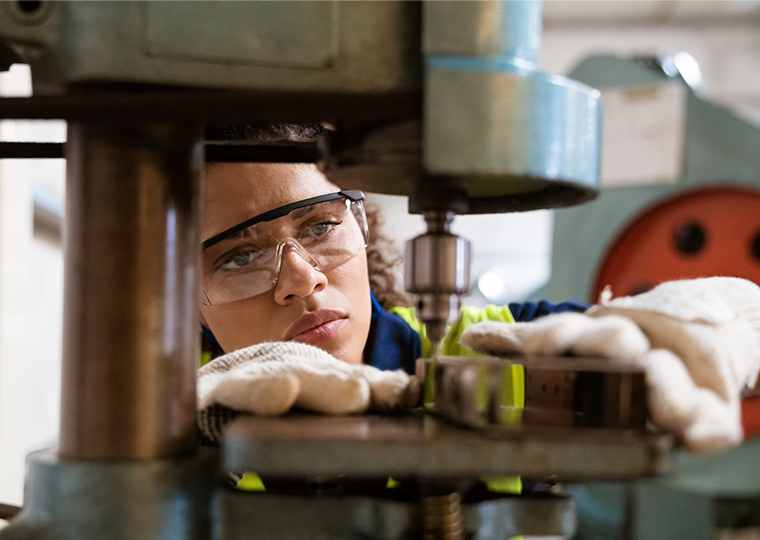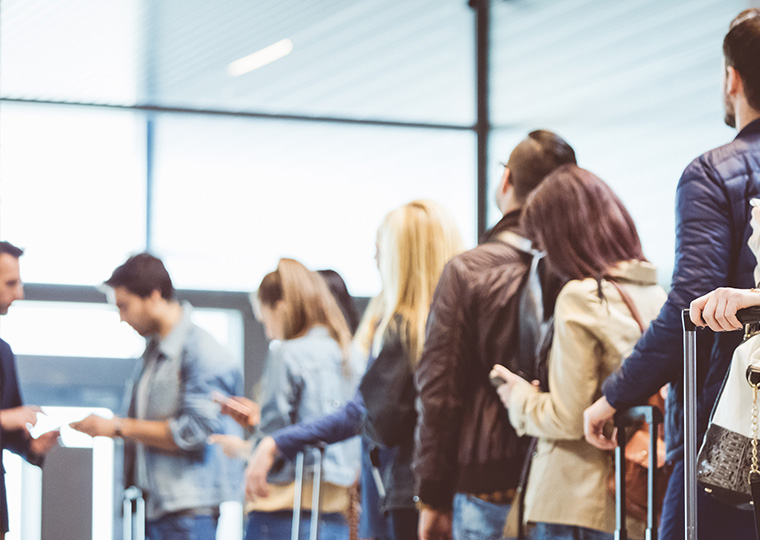Breakthrough technologies are years off for aviation, but incremental improvements are available
Technological advances — increasingly efficient solar and wind power, wide scale use of newly developed batteries, perhaps hydrogen as a fuel in the near future — hold out the promise of slowing the pace of global warming while maintaining the world’s current living standards.
But for some greenhouse gas-emitting industries, a breakthrough is far off. Should they just keep emitting at current levels, or should they do the work of making incremental reductions in carbon pollution while awaiting a breakthrough?
Aviation is one such industry facing this challenge. A working paper, examining airline industry practices over the course of jet fuel prices rising and falling in recent decades, suggests the industry could make substantial reductions in its greenhouse gas emissions and that a carbon tax on fuel would provide motivation to do so.
The paper — from UC Irvine’s Jan K. Brueckner, USC’s Matthew E. Kahn and UCLA Anderson’s Jerry Nickelsburg — suggests that, in face of higher prices, U.S. airlines would change operations and adjust the mix of aircraft they fly to save fuel.

US Refiner Price of Kerosene-Type Jet Fuel for Resale data by YCharts
The jet fuel price spike of the late 2000s, seen above, sent most of the domestic airline industry, which had largely failed to hedge against fuel price movements, into bankruptcy. During that period, airlines contracted — grounding fuel-guzzling aircraft — and adopted fuel-saving maneuvers.
Fuel Prices Drive Choices on Efficiency
Looking between 1991 and 2019, the paper’s authors found such changes contributed to a roughly 11% improvement in fuel efficiency for the three largest U.S. airlines — with a resulting reduction in greenhouse gas emissions.
”Changes in airline operations directed toward conserving fuel can be an important path toward lower emissions,” they write.
Air travel isn’t the worst offender when it comes to global warming — power plants and automobiles are far bigger contributors. In the U.S., airlines account for slightly more than 2% of total greenhouse gas emissions and about 8% of all emissions from transportation. However, aviation’s total impact on climate is aggravated by the effects of nitrogen oxides, vapor trails and cloud formation at high altitudes.
Biofuels, hydrogen and electrification all hold promise for the future. But hydrogen- and electricity-powered aircraft are still many years out and will be practical for only short-haul flights. Sustainable biofuels are available but much more expensive than conventional fuels.
Fuel represents roughly a quarter of U.S. carriers’ total operating costs for domestic flights. Over the last three decades, more efficient jet engines have helped commercial aviation reduce its carbon emissions. The recently introduced Airbus 320neo, for instance, produces 18% less emissions than the earlier A320 model, which is 40% cleaner than the early-generation Boeing 727-200 series. Similarly, the Boeing 737 Max is more efficient than earlier 737 models.
While airlines can’t replace their entire fleets at one go, they can change operations and manage their fleets to run more fuel-efficiently. Planes can taxi on just one engine or carry less reserve fuel. Winglets, the upturned tips of wings, can be added to reduce drag.
Speed and Aircraft: Two Variables to Efficiency
For their study, the authors concentrated on two factors: lowering flight speeds and replacing less-efficient craft with more efficient ones.
Using data from the Department of Transportation from 1991 to 2019, they analyzed annual fuel usage, flight hours and flight distances for 17 airlines and for each of the types of aircraft they flew. The authors also calculated total fuel costs by multiplying gallons per seat mile by the price of aviation fuel.
They found that when prices were high, airlines flew less-efficient aircraft at lower speeds; a 10% increase in fuel costs led to a 1.2% reduction in flight speed. Aircraft that fly slower will, of course, complete fewer trips and thus carry fewer passengers, so that a 10% increase in fuel prices reduced average seat miles by 13%.
Airlines, they found, would also retire their less-efficient planes more quickly when prices were high, removing planes whose fuel efficiency was lower than the fleet average from service.
They also looked at what happens to planes when they’re retired — important because if they’re just transferred to another carrier, overall climate gains are limited. Collecting annual inventories of airlines’ aircraft and their ages, they found, for instance, that 81% of American Airlines’ 270 older MD-82 aircraft were used for training or scrapped for parts, 12% were sold to carriers in developing countries, 5% were operated by cargo or charter services and 2% went to carriers in OECD (mostly wealthier) countries. The youngest planes were kept for parts or training, while the oldest were used by cargo and charter lines.
In contrast, Delta — whose fleet of 82 DC-9-30 was the oldest among the four biggest carriers — retired its planes at a time low-cost carriers such as ValueJet and AirTran were expanding. It kept only 10% for parts and training while 11% were being flown by cargo and charter carriers. The bulk, 54%, were operated by OECD carriers.
If, as the findings suggest, airlines will respond to higher prices by operating more efficiently, “government intervention in the form of an environmental fuel tax is appropriate” to encourage even greater efficiency efforts. “All these effects would put downward pressure on fuel usage by the airline industry, with consequent environmental benefits,” they write.
Any fuel tax, of course, would likely increase airfares, at least marginally, an unpopular development, especially now, as airfares have risen sharply in recent months. But taking a longer view, airfares, adjusted for inflation, have fallen over the last 40 years, thanks to deregulation; the spread of discount carriers; the ability of consumers to price shop online and bypass travel agents; and to more efficient aircraft.
Featured Faculty
-
Jerry Nickelsburg
Adjunct Full Professor and Director, UCLA Anderson Forecast
About the Research
Brueckner, J. K., Kahn, M. E., & Nickelsburg, J. (2023). How Do Airlines Cut Fuel Usage, Reducing Their Carbon Emissions?






